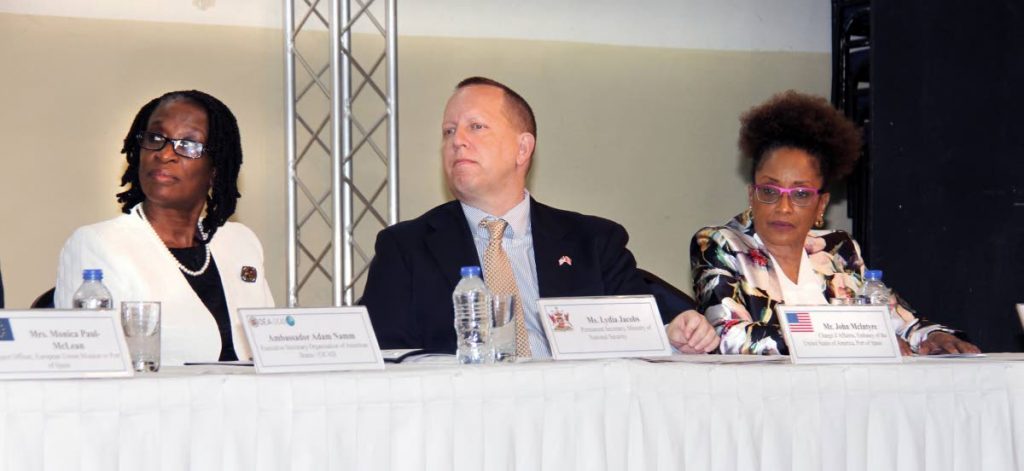Studies show Caribbean drug use increasing

The Caribbean has transitioned from being a transit-only region for illicit drugs, to a consumer of drugs, according to Programme Manager CARICOM Secretariat, Beverly Reynolds.
The alarming statement was made yesterday by Reynolds as she addressed the opening of the Regional Seminar on Drug Treatment and Drug Information Networks in the Caribbean, at the Police Training Academy, St James.
Reynolds said there is another hurricane, in the form of illicit drugs which has been silently and insidiously wreaking havoc in the region.
She said studies show a lowered age of first time users equally between males and females.
“It takes only one Hurricane a few hours to wipe out an entire country. Such is the vulnerability of the Caribbean region. We see the ravages in the lives of our young people and the erosion of the democratic processes on which our societies are founded.” She continued, “School surveys conducted by CICAD/OAS show a steady increase in the use of illicit drugs, in particular marijuana and crack/cocaine in and more recently ecstasy and methamphetamine.”
Reynolds said the problem of illicit drugs are negatively impacting the lives of young people and their families, the high economic cost and burden on the health, security, labour, education, and tourism sectors.
“When we juxtapose this situation against the deleterious effect of illicit drug use on the youth’s population, we can no longer subscribe to the popular belief that ‘what you don’t know can’t hurt you.’ I say what we don’t know can hurt us and will continue to hurt us until we fix it.”
Reynolds said, “So what’s to be done? Well we can continue to operate in the same old way of trial and error; of conventional wisdom; we can collect information but never share it, never use it or we can fix the systems where they are broken, build capacity and encourage the practice of collecting, analysing and using data to inform policy and programmatic interventions.”
She said it is her hope the three-day seminar and training workshop is one of the many activities being undertaken to strengthen capacity for effective drug reduction services and programmes.
Meanwhile, Ministry of National Security Permanent Secretary Lydia Jacobs said the ministry recognises that unity is critical in all endeavours, and everyone must work with each other to create a stronger and more secure region as a whole.
Jacobs said statics shows the Caribbean region has become a transshipment hub for both as it relates to illicit drugs, arms and ammunition and even human trafficking.
She said there is a need to be able to support respective policies and programmes with credible or evidence-based data.
“This week’s Seminar is pivotal as it relates to data collection and data analysis. Our ability to generate credible data in standardised format will better support drug policy and related programmes. It is my wish that this seminar will provide all participants with greater knowledge, understanding and skills so that we can all make a noteworthy difference in the field of drug control upon returning to your respective territories.”


Comments
"Studies show Caribbean drug use increasing"